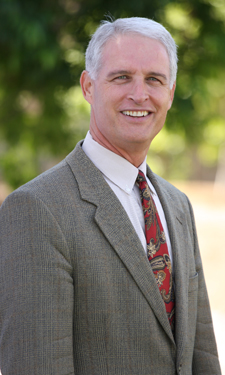 Since assuming this privileged role as your national board chair, I have intentionally used the platform to salute NRPA’s members who make our communities better places in which to live each and every day. There is no wavering in my commitment to making sure your efforts as professionals, volunteers, supporters and other champions of the parks and recreation field are appropriately acknowledged. You are positive makers of change, and your stories must be told.
Since assuming this privileged role as your national board chair, I have intentionally used the platform to salute NRPA’s members who make our communities better places in which to live each and every day. There is no wavering in my commitment to making sure your efforts as professionals, volunteers, supporters and other champions of the parks and recreation field are appropriately acknowledged. You are positive makers of change, and your stories must be told.
Sharpening the narrative of our field can help build the irrefutable case for support from those in political, economic and philanthropic positions of influence and power. This narrative is profoundly shaped by NRPA’s three pillars of conservation, health and wellness, and social equity. These pillars, demonstrated daily by agencies across our nation, make obvious the inextricable link between a robust, well-supported, public park and recreation field and overall community well-being. Your dedicated national board and our most capable national staff are “all in” to make sure your stories of collective impact are told in ways that strengthen your hand and advance our field on all fronts. We must make sure there is no doubt or misinterpretation about the value of our field to assure the social, cultural, environmental and economic advancement of our communities.
It is evident that our greatest power comes from stories. One such story was told by the late Debra Friedman. Upon arriving in 2011 as the new chancellor of the University of Washington-Tacoma, she spent her first July 4 holiday at Wright Park near her campus, observing families celebrating Independence Day. She noted:
Kids were everywhere, and for 30 minutes or so I watched them play on a contraption I hadn’t seen before, which they told me was called a spinner. In order to work the spinner, they had to cooperate. There were no posted rules or directions, and indeed, the spinner’s speed depended on how many kids were on it at once, how they were distributed, and their size and weight. Experiential interdisciplinary learning on display! A kid might, through trial and error, figure out the physics of the situation, but unless he or she convinced the other players to shift their weight in tandem, or better yet, to get some of them to get off and use their bodies to provide an energy source, the understanding would not produce an outcome. Over the 30 minutes or so, more than 20 kids, ranging in age from 6 to 12, of every shape and size and every ethnic background that makes up Tacoma, combined and recombined on this spinner. Each new combination required a reworking of the puzzle of momentum. Some kids were leaders, others mediators; some were free riders, others workhorses.
This story of children at play is a lesson for us all about the power of parks and recreation. Cooperation, negotiation, leadership, problemsolving — all desirable characteristics that will serve these children well as they age into productive, purposeful adulthood. Thank you, park and recreation champions, for making sure there are stories like this to be told.
Robert F. Ashcraft, Ph.D., is NRPA's Chair of the Board of Directors.

